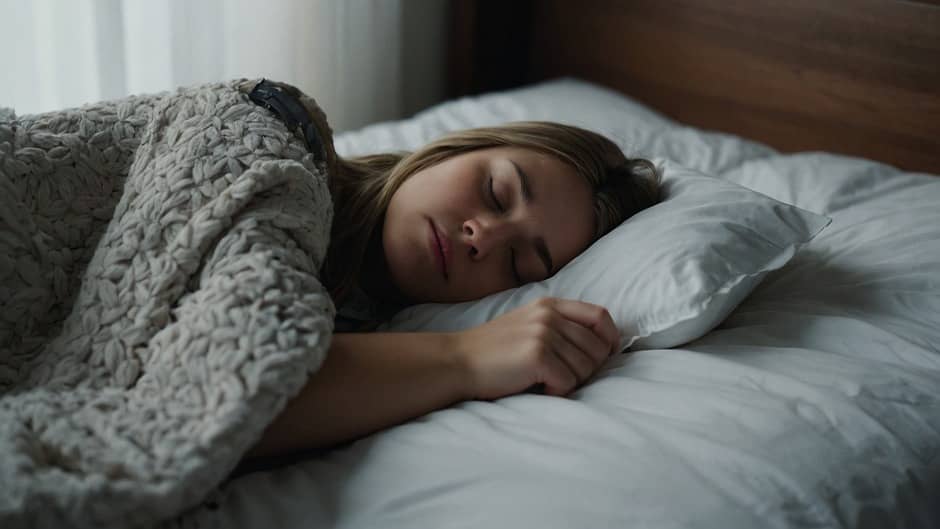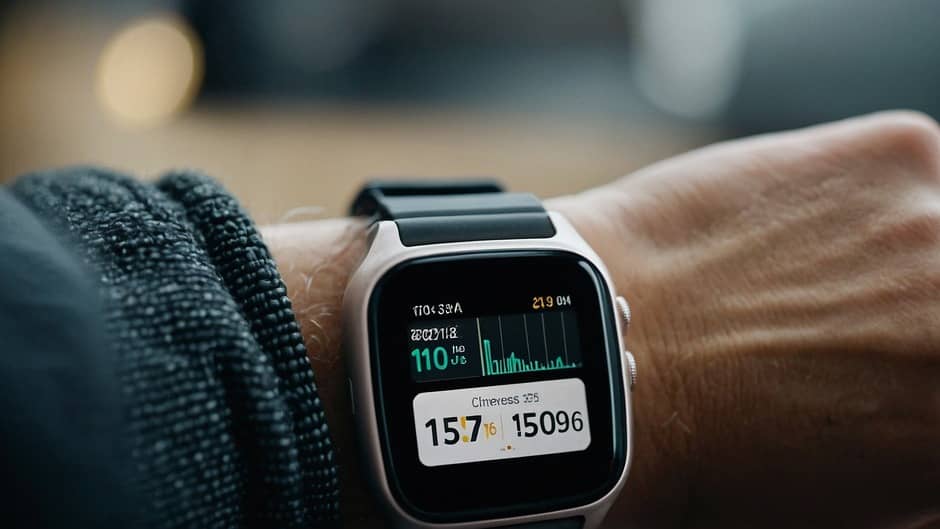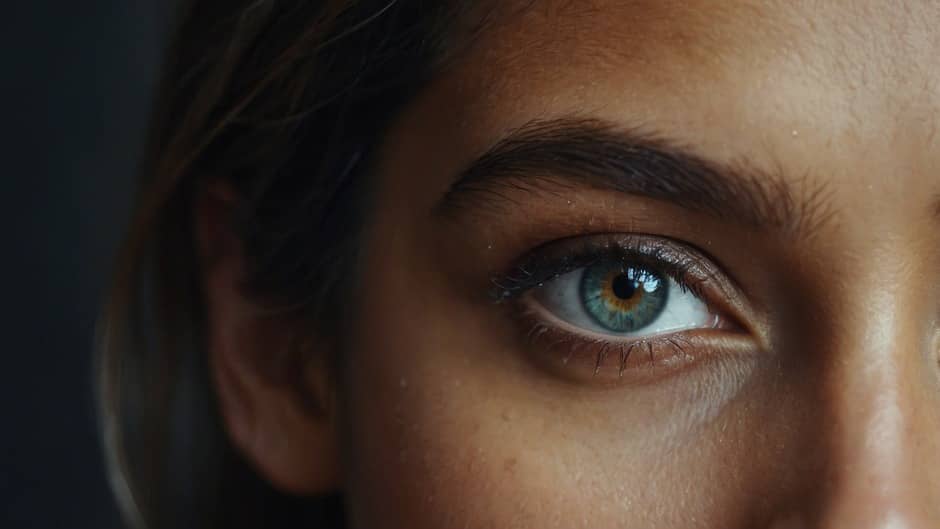Table of Contents
- Is Falling Asleep After Eating a Sign of Diabetes?
- What Happens When You Sleep Immediately After Eating?
- The Link Between Digestion and Sleep
- Why Pregnant Women Should Avoid Sleeping Immediately After Eating
- The Long-Term Consequences of Sleeping Right After Eating
- Foods That Help You Sleep Better
- The Importance of Meal Timing and Sleep Hygiene
Is Falling Asleep After Eating a Sign of Diabetes?
You know how it feels to be so tired after eating that all you want to do is curl up and sleep?
Most of us have experienced it occasionally, but if it persists, particularly after eating, you may want to consider other possibilities. Many people worry that their post-meal tiredness could be an indication of diabetes.
Let’s find out what causes sleep immediately after eating?
All things considered, our blood glucose levels often increase when we eat, particularly foods heavy in carbohydrates.
Patients with diabetes sometimes suffer from acute exhaustion due to their bodies’ inability to control these increases. However, it’s important to understand that while post-dinner sluggishness can be linked to diabetes, it’s far from a proven side effect before hastily making any judgment judgments.
What Happens When You Sleep Immediately After Eating?
Let’s examine more closely at what happens to your body when you lie down right after eating.
After a large meal, everyone has experienced the strong need to relax. Nevertheless, doing so may result in something other than a restful sleep. When you lie flat on your back, stomach acid—which is necessary for digestion—can occasionally seep into your esophagus.
This may cause acid reflux, where stomach acid rises into your throat, or heartburn, which is a burning feeling in your chest. After then, the amount of work your digestive system is currently doing to break down your food could become too much for it to handle.
The Link Between Digestion and Sleep
There is a link between sleep and digestion. Our bodies are designed to slow down while we sleep, and this includes the digestive system.
Therefore, if you go to bed right away after eating, your body won’t have enough time to process the food. Bloating, gas, and constipation are possible adverse effects. It’s like attempting to run a race immediately after a large meal—it simply doesn’t work.
Furthermore, while you sleep, your body concentrates on detoxification and cell repair rather than digestion of meals. Your body may struggle to do these other vital functions if it is still processing that large meal, which could make digestion difficult and cause you to feel sleepy all night.
Also Read – Best Natural Medicine For Dandruff – Ayurvedic Medicine For Dandruff Cure (2024)
Why Pregnant Women Should Avoid Sleeping Immediately After Eating
Pregnancy brings about a lot of changes, one of which is digestion. Hormonal changes can impede digestion, which is why heartburn and indigestion are common issues for pregnant women.
A pregnant woman who rests down right after eating may experience even more serious complications from these problems. The growing baby strains the stomach more, which increases the likelihood that stomach acid will rise into the esophagus and produce pain.
Poor digestion during pregnancy might not only be uncomfortable, but it can also limit the mother’s and her unborn child’s ability to absorb nutrients completely.
Pregnant women would be wise to eat fewer, more frequent dinners and to stay upright for a while after eating to help with digesting and lessen these uncomfortable side effects.
The Long-Term Consequences of Sleeping Right After Eating
If going to bed right after eating turns into a habit, it could potentially lead to major health issues.
Putting on weight is a serious issue. When your body slows down its metabolism while you sleep, you burn less calories overall. In the event that you consistently go to bed hungry, those extra calories are more likely to be stored as fat.
This may ultimately lead to weight gain, increasing your risk of developing other illnesses including diabetes and heart disease. An further problem is sleep disruption.
If your digestive system is still working hard while you’re attempting to fall asleep, you can wake up in the middle of the night with heartburn or indigestion.
This might lead to inadequate sleep, which affects everything from your mood to your immune system.
Foods That Help You Sleep Better
Almonds
Because almonds are high in magnesium, a mineral that promotes slumber and relaxes muscles, they make a great snack before bed.
They also provide protein and good fats, which help you avoid hunger pangs at three in the morning and maintain stable blood sugar levels throughout the night.
Turkey
Have you ever wondered why you feel so drowsy after Thanksgiving dinner? Turkey is high in tryptophan, an amino acid that is needed to produce the hormone melatonin, which controls sleep.
After eating turkey, you might feel more relaxed and prepared for a restful night’s sleep.
Chamomile Tea
It’s common knowledge that chamomile tea has relaxing properties. It has apigenin, a cell reinforcement that attaches to receptors in the brain that promote language development.
An easy way to fall asleep is to have a nice cup of chamomile tea before bed.
Kiwi
Kiwis are rich in serotonin, a chemical that controls sleep, in addition to being delicious.
Studies show that eating two kiwis an hour before bed will improve your sleep quality overall, help you fall asleep more quickly, and lengthen your sleep.

Tart Cherry Juice
Tart cherry juice is a natural source of melatonin, the hormone that controls your sleep-wake cycle.
Drinking sour cherry juice before bed will raise your melatonin levels, which can improve your sleep quality and help you fall asleep faster.
Fatty Fish
It has been demonstrated that vitamin D and omega-3 fatty acids from fatty fish, such as salmon, tuna, and mackerel, enhance the quality of sleep.
Omega-3 fatty acids help reduce inflammation, while vitamin D plays a role in regulating your sleep-wake cycle.
Also Read – How Does Weather Affect Your Health? (2024)
Walnuts
Walnuts are another excellent snack to have before bed. They contain melatonin as well as other nutrients that promote sleep. Furthermore, the fiber, protein, and good fats in walnuts keep you feeling full all night long.
Bananas
Bananas are a great source of potassium and magnesium, two minerals that help relax muscles and prepare the body for sleep.
Moreover, they include tryptophan, which your body uses to produce the hormones melatonin and serotonin, which promote better relaxation and sleep.
Greek Yogurt
Greek yogurt is high in casein, a slow-digesting protein that provides a continuous supply of amino acids throughout the night to keep you full and prevent muscle loss.
It also has tryptophan, which aids in the production of melatonin.
Oatmeal
A comforting snack that can aid with sleep is oatmeal. Many complex carbohydrates included in oats contribute to tryptophan’s increased bloodstream accessibility.
Tryptophan is used by your body to produce melatonin and serotonin. The fiber in oatmeal also contributes to steady blood sugar levels, which helps avoid cravings at night.
The Importance of Meal Timing and Sleep Hygiene
Your sleep quality can be impacted not just by what you eat but also by when you eat.
Eating a heavy dinner late in the evening might induce indigestion and pain in addition to making it more difficult to fall asleep. Nonetheless, starving oneself before bed might also interfere with rest.
Getting the balance just right is crucial.
Try to finish your last meal two or three hours before bed to allow your body to properly digest it. Meal timing and good sleep hygiene are two more factors that can be helpful.
This entails establishing a calming evening ritual, sticking to a regular sleep schedule, and ensuring sure your bedroom is cozy and distraction-free.
Read us on Medium.




